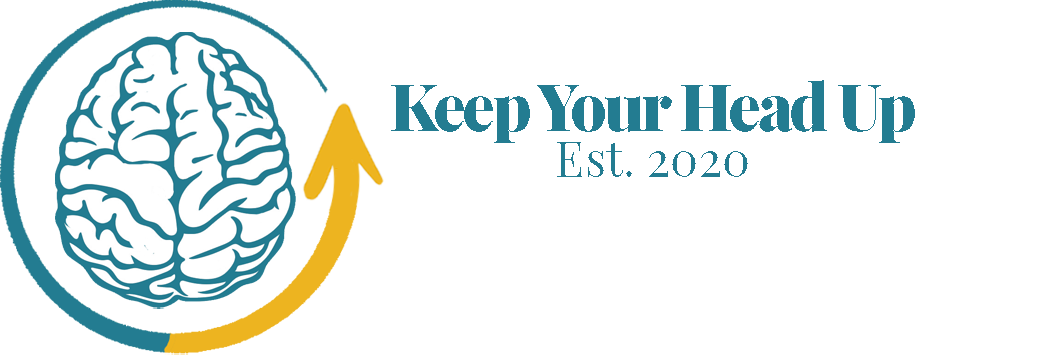Tips and Tricks for Concussions
Living with a Traumatic Brain Injury means learning to shift your life to make things easier for you. Brain injuries can cause brain fog, fatigue, balance problems, migraines, eye strain, memory issues, difficulty balancing, loss of coordination, trouble concentrating, and much more. On top of that, a brain injury can worsen the symptoms of mental illnesses like anxiety and depression.
At Keep Your Head Up, we understand that a brain injury is a major life changing event, and we know that it can be hard to manage your symptoms. You are not alone. We have gathered several tips from our own staff and from some of our Mindful Moments participants that you may find helpful.
Tools our Community Finds Helpful
Ice Roller
Refillable water bottle
Noise cancelling headphones
Weighted blanket
Walking poles
Sunglasses
Fall detection watch
Weighted Eye Pillow
Goals Journal.
Blackout curtains
These are things that will help ground you, ease the strain of your symptoms, and help you reach your goals. You may find some items work better for you than others, you may find some other items that work for you and that’s fine. These are just some ideas from other survivors that have found them helpful.
Accessibility for Eye Strain:
Switch to dark mode
Lower the brightness on your screens
Dim the lights
Wear sunglasses whenever needed
Adjust the font size of your reading materials.
Zoom in when reading on your phone or computer
Use the “read” feature on articles/use audiobooks
Accessibility for Auditory Strain:
Use earbuds or noise cancelling headphones when in crowded or loud areas
Switch on captions for videos and online lectures
Request written instructions ahead of time
Use a white noise machine
Sleep Challenges:
Maintain a routine of going to bed and waking up at consistent times
Try to get some fresh air by opening windows or going for a walk
Do some gentle stretches before going to bed
Try to maintain a bedtime routine, such as showering, washing your face, brushing your teeth, and then going to bed
Meditate before going to bed
Avoid extreme heat or extreme cold in your bedroom
Remember, you are never alone. A brain injury can lead to feelings of isolation, helplessness, and uncertainty. You don’t have to go through it by yourself, speak to your doctor about issues you are experiencing, reach out to friends and family, and mental health professionals. Our Mindful Moments program is also run online on Wednesdays if you want to join a community of individuals who have also gone through head injuries.

